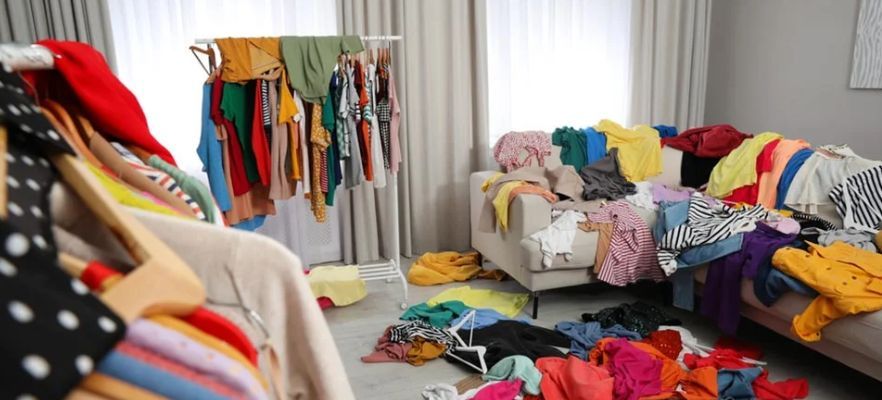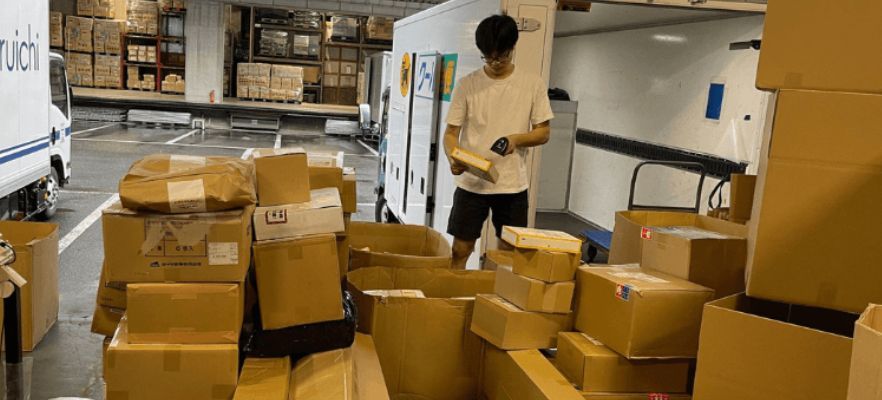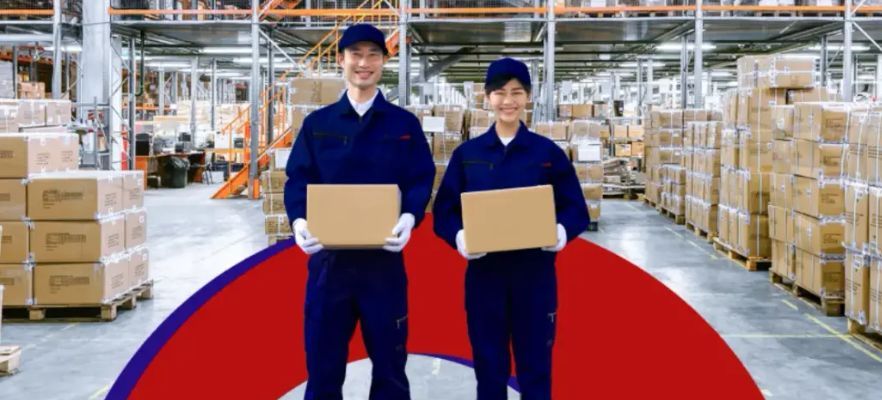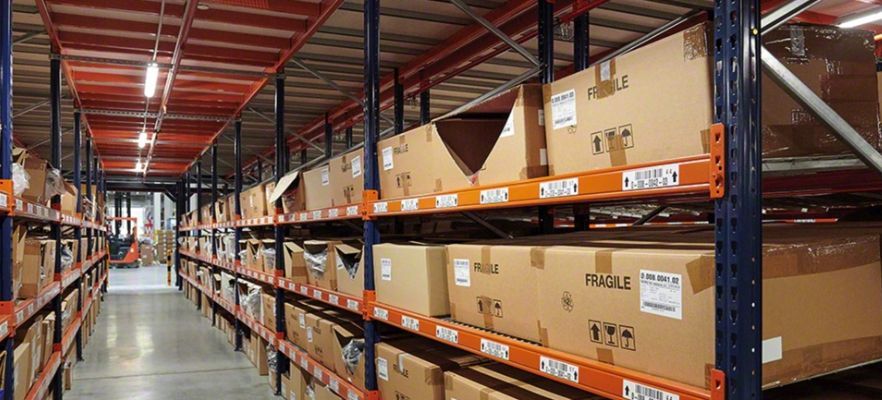Fashion Fulfillment in Japan: Your Gateway to the Lucrative Japanese Market
By Macy -03/07/2025 UTC.
Japan’s fashion industry is known for its innovation, quality, and fast-paced consumer demands - making efficient logistics more important than ever. From inventory handling and custom packaging to express delivery and seamless returns, the country offers a highly advanced infrastructure to support apparel brands. Whether you're a local label or an international retailer, understanding how the logistics ecosystem works can give you a competitive edge. In this guide, we dive into everything you need to know about fashion fulfillment in Japan including key services, costs, legal requirements, and how to optimize operations with trusted local partners like Ezbuy Japan.
1. Understanding fashion fulfillment in Japan
Japan is globally recognized for its high standards in fashion, from minimalistic streetwear to cutting-edge couture. With a thriving domestic fashion scene and a growing demand for Japanese fashion worldwide, fashion fulfillment in Japan has become an essential service for both local and international brands. But what exactly is fashion fulfillment?
Fashion fulfillment refers to the end-to-end logistics process for fashion products—from warehousing and inventory management to packing, shipping, and reverse logistics. In Japan, this process is fine-tuned to meet the unique demands of the fashion industry, which requires precise handling, fast turnaround times, and exceptional quality control.
Japan’s logistics ecosystem is known for being clean, efficient, and technologically advanced. These qualities make the country a favorable base not only for fast fashion but also for luxury brand fulfillment services in Japan, which require even higher attention to detail.
Whether you’re a streetwear startup or a global brand, using a clothing warehouse & fulfillment Japan partner ensures your garments are stored, processed, and shipped according to the market's premium expectations.
Additionally, with growing awareness around sustainability, more brands are seeking sustainable fashion fulfillment Japan solutions that include eco-packaging, carbon-neutral shipping, and minimal waste practices.

2. Services in Fashion Fulfillment & Logistics in Japan
Fashion fulfillment in Japan is built on precision, speed, and high attention to detail—qualities that are crucial in the fashion industry. Japanese fulfillment providers offer a wide array of specialized services tailored to the unique demands of fashion logistics Japan, ensuring that every item reaches customers in pristine condition.
One of the core services is inventory management. Japanese warehouses use advanced Warehouse Management Systems (WMS) that allow real-time tracking of stock levels, product locations, and SKU performance. This accuracy is essential for managing seasonal collections, flash sales, or limited-edition drops.
Quality control and inspection is another critical component. Given Japan’s reputation for perfectionism, fulfillment centers carry out rigorous checks for fabric defects, loose threads, size mismatches, or packaging flaws. Some providers even offer steaming or ironing services to ensure garments arrive looking flawless.
Pick and pack operations are optimized for fashion items. Whether it's folding T-shirts or hanging suits, the packing process uses garment-specific materials to prevent wrinkles or damage. Many centers also provide branded packaging, tissue wrap, thank-you cards, or gift box options to elevate the unboxing experience.
Another essential service is multi-channel order integration. Japanese 3PLs can sync with platforms like Shopify, Rakuten, ZOZOTOWN, Amazon Japan, and even international marketplaces, allowing centralized order processing and inventory updates across all sales channels.
Finally, returns management in Japan is efficient and customer-centric. Returned items are inspected, categorized (e.g., resellable, defective), and either restocked or flagged for disposal. This system minimizes loss while ensuring a smooth customer experience.
3. Benefits of Outsourcing Fashion Fulfillment in Japan
Outsourcing fashion fulfillment in Japan offers numerous strategic advantages, especially for brands looking to scale efficiently while maintaining exceptional service quality. With Japan's reputation for precision, reliability, and advanced logistics infrastructure, partnering with a local third-party logistics (3PL) provider can significantly enhance operational performance.
One of the most immediate benefits is cost optimization, a critical component when considering the cost of fashion fulfillment in Japan. Establishing and operating your own warehouse in Japan involves high overhead costs, including labor, real estate, and utilities. By outsourcing, brands eliminate these fixed expenses and instead pay only for the services they use—such as storage, pick and pack, and shipping—resulting in a more flexible cost structure.
Time savings is another critical advantage. Fashion brands can delegate labor-intensive logistics tasks—inventory management, order processing, and returns handling—to fulfillment specialists. This frees up valuable internal resources to focus on core areas such as product design, marketing, and customer engagement.
Additionally, outsourcing provides scalability. During sales spikes, holiday seasons, or new product launches, fulfillment providers can quickly adjust capacity to meet demand without disruption. This level of operational agility is difficult to achieve with in-house teams.
Another major benefit is improved customer satisfaction. Japanese fulfillment providers are known for their attention to detail, fast shipping, and precise order accuracy. These qualities translate into better customer reviews, reduced returns, and stronger brand loyalty.
Furthermore, outsourcing opens the door to value-added services such as branded packaging, real-time tracking, and custom kitting. Many 3PLs in Japan also offer multilingual support and cross-border shipping solutions, enabling smooth expansion into other Asian or global markets. These options make it easier to identify the best fulfillment services for fashion in Japan based on your brand’s needs.
In essence, outsourcing fashion fulfillment in Japan empowers brands to scale faster, deliver superior customer experiences, and reduce operational risk—all while benefiting from the country’s world-class logistics ecosystem.
>>> Read more: E-commerce Fulfillment to Japan: A Complete Guide for Global Sellers
4. Conditions and Requirements for Fashion Fulfillment in Japan
To successfully operate fashion fulfillment in Japan, brands must navigate a set of specific conditions and requirements unique to the Japanese market. These standards ensure operational efficiency, legal compliance, and customer satisfaction—and overlooking them can lead to delays, fines, or damaged brand reputation.
One of the key requirements is proper labeling and packaging. Fashion items sold in Japan must adhere to strict labeling laws under the Household Goods Quality Labeling Act. Each product must include labels in Japanese that indicate material composition, country of origin, care instructions, and manufacturer contact information. Without this, goods may be held up at customs or rejected by marketplaces.
Another condition is barcode and SKU accuracy. Japanese fulfillment centers rely heavily on automated systems, so your SKUs and barcodes must match exactly with what's provided in digital inventory sheets. Any discrepancies can cause delays or fulfillment errors.
Language compatibility is also critical. While some modern 3PLs in Japan offer English support, many systems, invoices, and product documentation are still in Japanese. Brands must either localize this data or work with bilingual fulfillment partners to bridge the communication gap.
Importing goods into Japan also requires compliance with customs and tax regulations. Fashion brands shipping products from overseas must prepare invoices, HS codes, and documentation to meet import requirements. Understanding Japan’s consumption tax (10%) and how it applies to imported goods is essential for accurate pricing and cost management.
Furthermore, many Japanese fulfillment centers expect pre-sorted and pre-packed inventory. If items arrive unsorted or not properly labeled, the warehouse may charge additional handling fees or delay intake processing.
Brands that specialize in high-end apparel must also meet expectations for luxury fashion logistics Japan, including protective packaging, humidity-controlled storage, and white-glove service options.
By ensuring compliance with these operational standards, brands can enjoy smoother fulfillment processes, avoid costly mistakes, and build trust with Japanese consumers—who value precision, transparency, and reliability in every purchase.

5. Delivery times and cost of fashion fulfillment in Japan
Japan is renowned for its world-class logistics network, which enables fast and reliable delivery—an essential requirement for the fast-paced fashion industry. Whether fulfilling orders domestically or internationally, understanding delivery timelines and cost structures is critical for both customer satisfaction and effective budgeting.
Domestic Delivery
- Carriers: Yamato Transport (Kuroneko), Sagawa Express, Japan Post
- Delivery Time: 1–2 business days (standard), same-day options available
- Cost: ¥500 to ¥1,200 (approx. $4 to $9 USD)
International Delivery
- Carriers: EMS, DHL, FedEx, UPS
- Delivery Time:
- Asia: 2–5 business days
- North America/Europe: 5–10 business days
- Cost: $12–$30 per shipment depending on destination, weight, and speed
Options such as ePacket shipping for fashion Japan allow lower-cost delivery for small lightweight packages under 2kg, making it ideal for startups and fast fashion items.
Fulfillment providers may also offer consolidated shipping services and discounted carrier rates—reducing your total cost per order.
By leveraging Japan’s efficient delivery infrastructure and competitive shipping rates, fashion brands can meet customer expectations with speed, accuracy, and cost-effectiveness—both within Japan and worldwide.
6. Step-by-Step Process for Fashion Fulfillment with Ezbuy Japan
Partnering with Ezbuy Japan provides fashion brands with a streamlined, end-to-end fulfillment experience tailored specifically to the unique demands of apparel and accessories. Here’s a breakdown of the step-by-step process when working with Ezbuy Japan:
Initial Consultation and Account Setup
Brands begin by meeting with the Ezbuy team to discuss their products, sales volume, preferred sales channels, packaging needs, and target markets. Ezbuy then proposes a custom fulfillment plan based on the brand’s goals and requirements.

Inventory Shipment and Inbound Processing
Once the contract is in place, brands ship their inventory to Ezbuy’s fulfillment warehouse in Japan. Upon arrival, each item is carefully checked for quantity, quality, and labeling. SKUs and barcodes are verified and entered into Ezbuy’s Warehouse Management System (WMS) for accurate stock tracking.
Platform Integration
Ezbuy’s tech team integrates your online store—whether it’s Shopify, Amazon Japan, Rakuten, or another platform—into their system. This allows orders to sync automatically in real time and reduces manual intervention.
Order Fulfillment and Packing
When a customer places an order, Ezbuy’s staff picks the item, performs a final quality check, and packs it according to your brand guidelines. Options like branded packaging, eco-friendly materials, or gift wrap can be included upon request.
Shipping and Tracking
Ezbuy ships the order using your chosen carrier (e.g., Yamato, DHL, EMS). Tracking numbers are uploaded instantly to your store, and customers receive delivery updates.
Returns and Reporting
Returned items are inspected and restocked or reported as damaged. Monthly analytics and performance reports help brands track KPIs and optimize inventory and shipping strategies.
>>> Read more: Custom Beauty Fulfillment in Japan: A Complete Guide for Global Sellers
7. FAQs
Can international fashion brands use fulfillment services in Japan?
Yes. Many Japanese fulfillment providers, including Ezbuy Japan, specialize in helping international brands manage logistics in Japan. Whether you're looking to enter the Japanese market or use Japan as a regional fulfillment hub for Asia, these services are fully accessible to non-Japanese companies.

Do I need a Japanese business license to use a fulfillment center in Japan?
No, you don’t necessarily need to establish a Japanese company. Many 3PL providers offer import agency services and can legally receive, store, and ship goods on your behalf, provided you meet the documentation and compliance requirements.
What types of fashion items can be fulfilled through Ezbuy Japan?
Ezbuy Japan handles a wide range of apparel and fashion goods, including clothing, shoes, accessories, and even luxury items. The fulfillment process is tailored to the specific care, handling, and packaging needs of fashion products.
How are returns managed?
Returns are processed according to your brand’s policy. Returned items are inspected for quality, restocked if in resellable condition, or reported as damaged. Ezbuy’s system ensures real-time updates and clear documentation for each returned item.
Is it possible to offer custom packaging and branding?
Yes. Ezbuy Japan offers a variety of custom packaging solutions such as branded boxes, eco-friendly materials, tissue wrapping, stickers, and printed thank-you notes. These services can help elevate your brand image and enhance the unboxing experience.
How fast is the delivery from Japan to international markets?
Delivery typically takes 2–5 business days for Asia and 5–10 days for North America and Europe, depending on the shipping option selected.
In conclusion, fashion fulfillment in Japan offers unmatched efficiency, quality, and scalability. Whether you're a global fashion brand or a luxury label, leveraging Japan’s advanced logistics system ensures your products reach customers flawlessly—both locally and worldwide.
Website: https://ezbuy.jp
Email: [email protected]